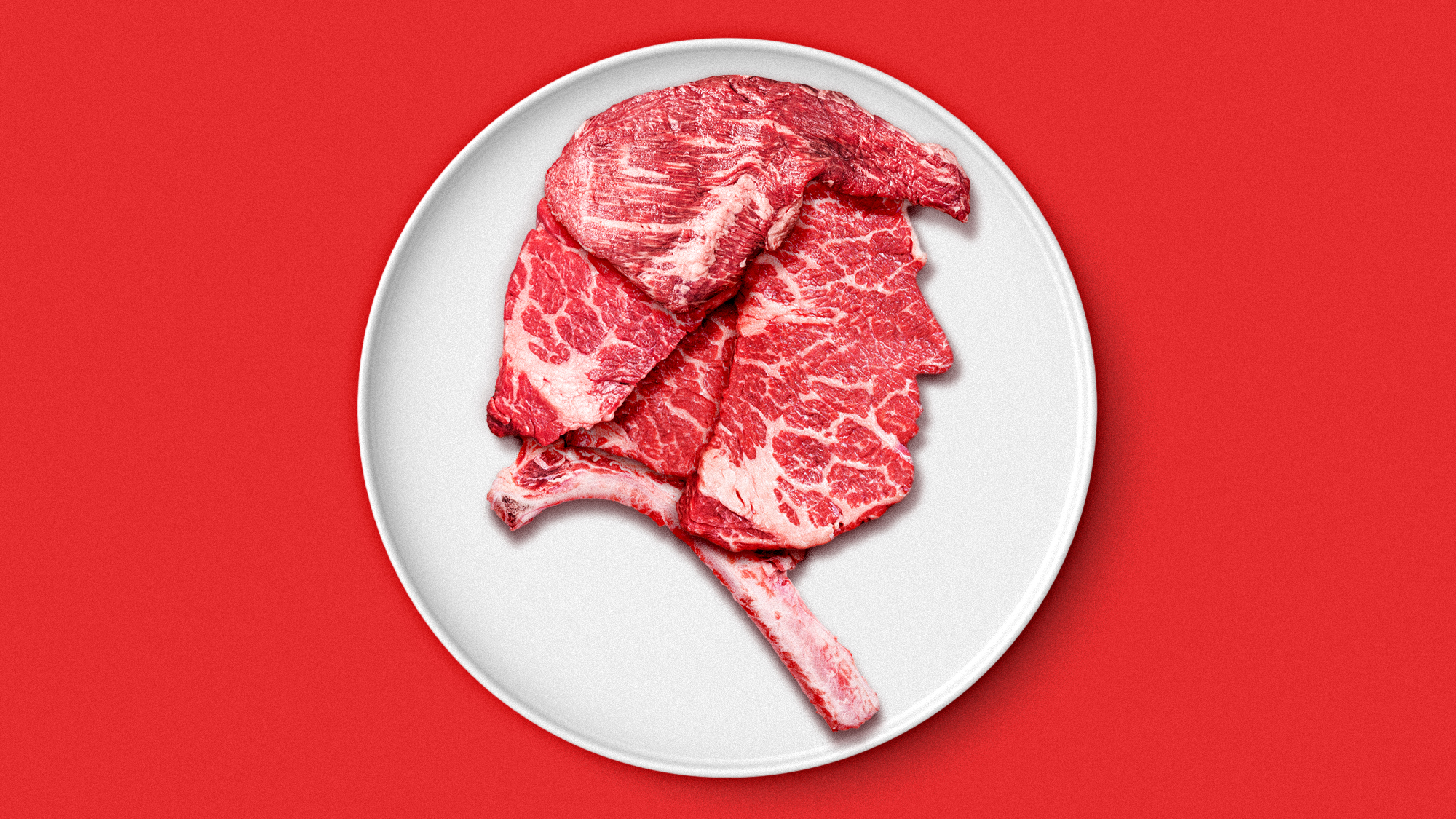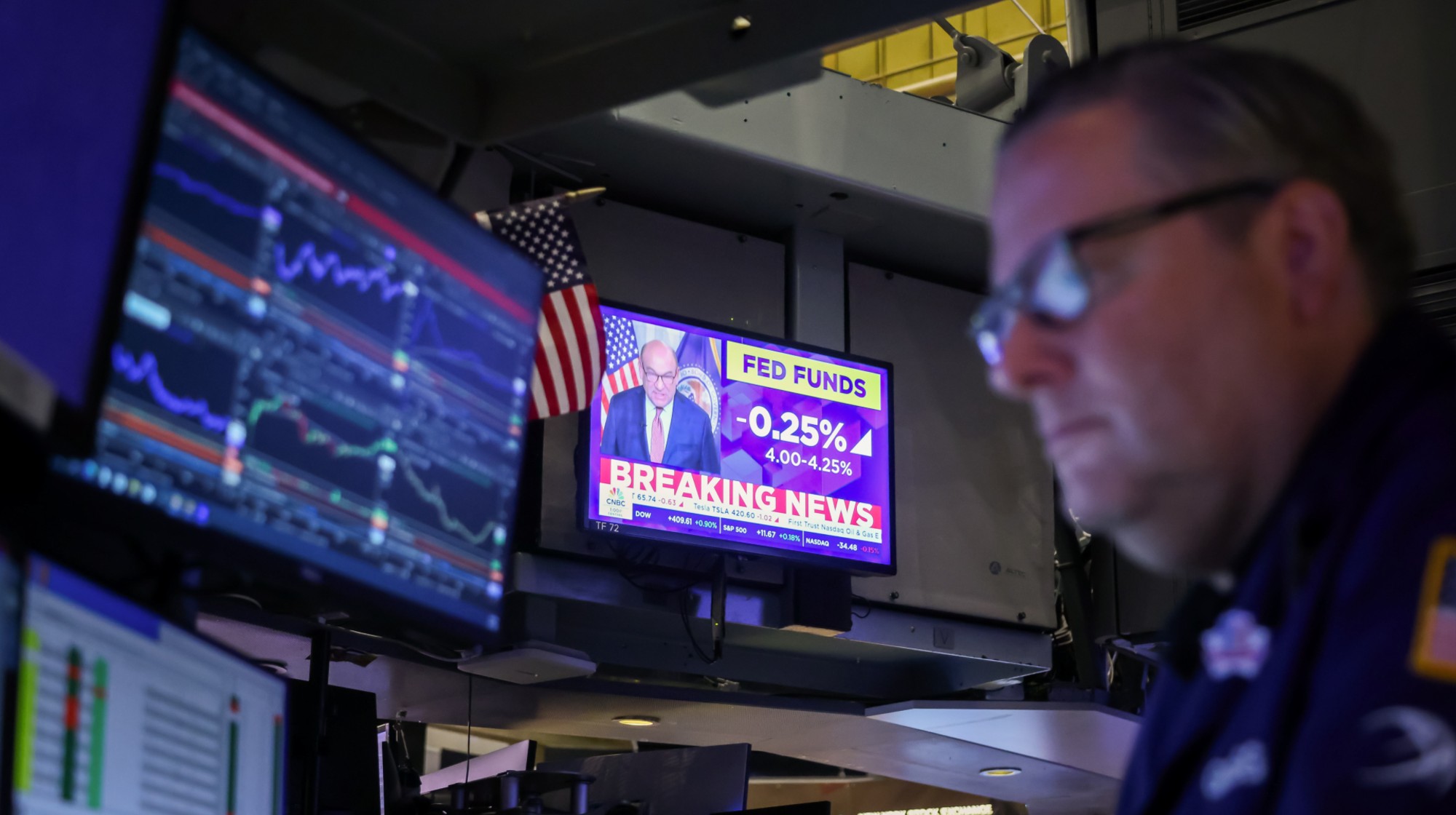Inflation: Soaring prices spur market rout
The latest inflation numbers continue to rise

A free daily email with the biggest news stories of the day – and the best features from TheWeek.com
You are now subscribed
Your newsletter sign-up was successful
The smartest insight and analysis, from all perspectives, rounded up from around the web:
No matter how hard you look, the latest inflation report has no silver linings, said Ruth Carson and Ishika Mookerjee in Bloomberg: Dashing hopes that prices would start to moderate, the new data show they are still soaring. The S&P 500 officially fell into a bear market this week — down 22 percent from its latest high — after the U.S. Bureau of Labor Statistics found that "faster-than-forecast U.S. inflation continued gathering pace" in May. The Consumer Price Index rose last month by 8.6 percent from a year earlier, its highest level since 1981. The numbers snuffed out expectations that the Fed can orchestrate a recession-free "soft landing." Traders began bracing for the Fed to hit the brakes by "jacking up borrowing costs" faster than it has at any time since the mid-1990s.
So much for "peak inflation," said The Wall Street Journal in an editorial. Prices rose across the board last month. Gasoline is now averaging $5 per gallon nationwide, while "everything at the supermarket has become more expensive in the past year." At the same time, real average hourly earnings fell 3 percent compared with May 2021 as wages struggle to keep pace with prices. All that "progressive spending given to Americans in welfare and new entitlements" has been "taken away in a lower standard of living." Just imagine how bad things would be if West Virginia Sen. Joe Manchin hadn't stopped Democrats from passing that $4.5 trillion Build Back Better plan. The actual numbers are ugly enough, said Kevin Dugan in New York magazine. "The report has effectively shattered the cautious optimism that the economy could actually turn in any meaningful way anytime soon." Worse, they show that the Fed's actions have been "ineffective so far in the face of today's inflationary pressures."
The Week
Escape your echo chamber. Get the facts behind the news, plus analysis from multiple perspectives.

Sign up for The Week's Free Newsletters
From our morning news briefing to a weekly Good News Newsletter, get the best of The Week delivered directly to your inbox.
From our morning news briefing to a weekly Good News Newsletter, get the best of The Week delivered directly to your inbox.
Policymakers were wrong about inflation being "transitory," and they are admitting as much, said James Surowiecki in The Atlantic. But how bad were their mistakes? Though it now "seems inarguable" that the stimulus package was too big, it did help millions of people get "back to work much faster than they would have otherwise." The Biden administration opted to "err on the side of going big" with economic aid to preempt a post-2008-style period of stagnant growth and high unemployment. Both the White House and the Fed "applied the last playbook to the new crisis," said Nick Timiraos and Jon Hilsenrath in The Wall Street Journal. They saw the danger of doing too little to stimulate the economy, and missed the danger of doing too much. "We fought the last war," said one of President Obama's top economic advisers.
Actually, the Federal Reserve has been fighting that last war for years, said Christopher Leonard in The New York Times. That set up the conditions for the current spiral. Starting in 2010, by holding interest rates near zero while pumping trillions into the banking system, the Fed "embarked on an unprecedented and experimental path" that formed the fault lines for a "financial earthquake." The stock market's deterioration now represents the "sobering realization on Wall Street" that the "decade of supereasy money" that supercharged stock prices is over.
This article was first published in the latest issue of The Week magazine. If you want to read more like it, you can try six risk-free issues of the magazine here.
A free daily email with the biggest news stories of the day – and the best features from TheWeek.com
-
 Health insurance: Premiums soar as ACA subsidies end
Health insurance: Premiums soar as ACA subsidies endFeature 1.4 million people have dropped coverage
-
 Anthropic: AI triggers the ‘SaaSpocalypse’
Anthropic: AI triggers the ‘SaaSpocalypse’Feature A grim reaper for software services?
-
 NIH director Bhattacharya tapped as acting CDC head
NIH director Bhattacharya tapped as acting CDC headSpeed Read Jay Bhattacharya, a critic of the CDC’s Covid-19 response, will now lead the Centers for Disease Control and Prevention
-
 Will Trump’s 10% credit card rate limit actually help consumers?
Will Trump’s 10% credit card rate limit actually help consumers?Today's Big Question Banks say they would pull back on credit
-
 What will the US economy look like in 2026?
What will the US economy look like in 2026?Today’s Big Question Wall Street is bullish, but uncertain
-
 Is $140,000 the real poverty line?
Is $140,000 the real poverty line?Feature Financial hardship is wearing Americans down, and the break-even point for many families keeps rising
-
 Fast food is no longer affordable for low-income Americans
Fast food is no longer affordable for low-income AmericansThe explainer Cheap meals are getting farther out of reach
-
 Why has America’s economy gone K-shaped?
Why has America’s economy gone K-shaped?Today's Big Question The rich are doing well. Everybody else is scrimping.
-
 From candy to costumes, inflation is spooking consumers on Halloween this year
From candy to costumes, inflation is spooking consumers on Halloween this yearIn the Spotlight Both candy and costumes have jumped significantly in price
-
 Why are beef prices rising? And how is politics involved?
Why are beef prices rising? And how is politics involved?Today's Big Question Drought, tariffs and consumer demand all play a role
-
 Fed cuts interest rates a quarter point
Fed cuts interest rates a quarter pointSpeed Read ‘The cut suggests a broader shift toward concern about cracks forming in the job market’